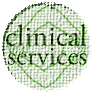FAQS ABOUT OTHER WORKSHOPS
LOCATION
Q: Where is Suzanne Morris teaching workshops in 2018?
A: For personal reasons, Suzanne has chosen not to teach any of these larger workshops in 2018 in the United States. One international workshop may be taught each year.
SIZE
Q: How many participants are accepted for the workshop?
A: The number of participants can vary from 50-125. The size of the workshop is often dependent on the workshop location or preferences of the sponsoring agency.
COST
Q: What is the registration fee for each workshop?
A: Sponsoring organizations set the fees for each workshop.
Q: Why does the same workshop cost more in some locations?
A: Workshop expenses for the sponsoring organization can vary tremendously. Variable costs may include: hotel rental, break and meal costs, instructor's travel, and audiovisual rental.
MEALS
Q: Is lunch included in the workshop?
A: Please check with the sponsoring agency for the workshop that you hope to attend. In most cases lunch is included as part of the workshop. Some sponsoring organizations prefer to have participants eat on-their-own in local restaurants. This may be a less expensive option or an easier option than having the meal catered.
REGISTRATION
Q: How do I register for a workshop?
A: Registration is handled directly by the sponsoring organization. Please contact the person listed for each workshop to obtain a brochure and registration form.
Q: I am the parent of a child with special needs. Is this workshop open to parents?
A: Suzanne encourages parents to come to her workshops. She teaches in a clear, common-sense style which does not depend upon an extensive professional background.
WORKSHOP CONTENT
Q: I have already taken a longer New Visions feeding workshop. Would I benefit from taking one of the shorter workshops?
A: There are many features of these workshops that are different from the workshop, Nourishing the Whole Child in the Development of Oral Feeding Skills or Becoming a Mealtime Partner a narrower focus which allows for greater depth in the topic-areas of the workshop. For example, The Journey from Tube Feeding Toward Oral Feeding provides more information on the collaboration of physicians and therapists in assessment and treatment options. In addition, specific videotaped examples of treatment strategies are provided and discussed. Many graduates of the New Visions workshops in Virginia attend other workshops taught by Suzanne Evans Morris.
Q: What is the content and teaching level for the workshops?
A: The courses benefit participants with widely differing amounts of experience working with infants and children with feeding difficulties. The focus is placed on integrating new information with whatever the participant's current knowledge may be. Thus, the workshop is very appropriate for those at a beginning, intermediate, or advanced level of knowledge and experience.
Q: Will I learn a lot of new therapy techniques in these workshops?
A: Although many therapeutic techniques will be discussed and illustrated through videotape, the workshops focus on an in-depth understanding of the child's issues and needs, and the overall approach to therapy rather than the specific techniques used. A solid foundation of understanding and the ability to problem-solve enables the therapist to select appropriate therapy techniques for each child.
Q: I am not a therapist (i.e. teacher, dietitian, social worker, nurse, physician, parent). Can I take the workshop, or is it just for therapists?
A: The workshop is open to anyone who works with or has an interest in children or adults with feeding problems.
Q: I work with adults. Is this workshop appropriate for me?
A: Although the primary focus is on infants and children, there is a great deal which applies to adult clients with developmental disabilities and traumatic brain injury. The courses do not address the needs of adult clients with swallowing problems related to conditions such as Parkinson's Disease, ALS, MS, or Stroke.
Q: I work in a center for severely multi-handicapped children who are oral feeders. Will any of these courses meet my needs?
A: Most of Suzanne's workshops contain information that applies to this population of children. Feeding the Whole Child: A Mealtime Approach contains information and concepts that apply to all children and all mealtime settings.
The Journey from Tube Feeding Toward Oral Feeding addresses the needs of children whose primary feeding problems lie in the areas of sucking and swallowing. Some of these children receive partial or total tube feedings. Others are able to thrive with oral feedings. Some of these children have severe physical disabilities in conjunction with a severe feeding problem. Others are unable to eat competently despite good physical coordination.
The needs of children who have difficulty with more advanced eating and drinking skills (i.e. biting, chewing, cup drinking) are covered in the workshop, Feeding and Pre-Speech Issues: The Mild and Moderately Involved Child. Many children with severe physical or cognitive dysfunction have feeding or pre-speech problems which would be described as mild or moderate.
Q: I work with many children who resist eating or are very picky eaters. Will these workshops help me provide better therapy for them?
A: All of the workshops provide greater insight and practical suggestion for children who dislike eating. The workshop, The Child with Feeding Aversion–Impact of Gastrointestinal Discomfort is specifically directed at the problems of many of these children. The majority of these youngsters have a sensory-based feeding problem or have experienced gastrointestinal discomfort combined with negative experiences related to oral input or eating. If the child has a feeding tube, the workshop, The Journey from Tube Feeding Toward Oral Feeding, would be your best choice. If you are working with a child who eats by mouth, the workshop, Feeding and Pre-Speech Issues: The Mild and Moderately Involved Child. would address your questions.







